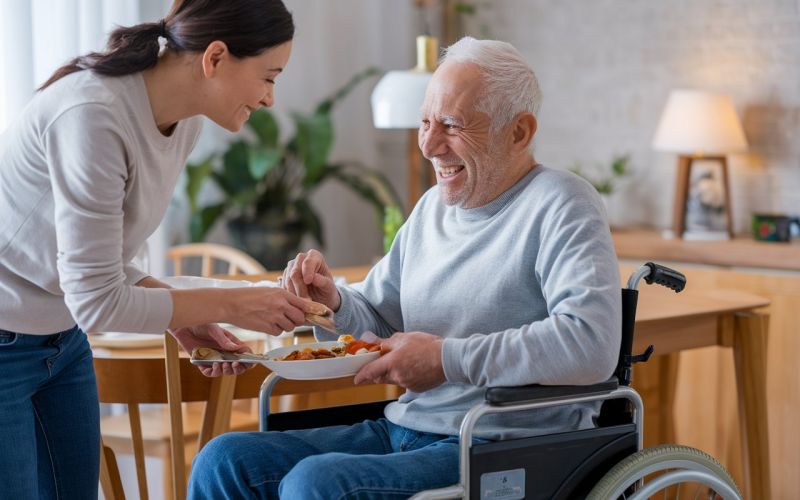Elderly Bowel Problem: How To Deal With It?
iSavta | 03.03.2020
When you are caring for an Elderly patient, you are aware that there are 2 kinds of bowel problems in the Elderly. One is Constipation and the other in Incontinence.

Older adults usually complain of difficulty in defecating, hard stool or feeling of not completely passing enough stool. Treatment includes relieving these symptoms by giving the patient some medications to raise the frequency of defecating to possibly once per day.
Acute Constipation is usually sudden due to some recent abdominal problem and may require a temporary treatment after ruling out some possibilities that may cause the problem. Chronic constipation however may require a permanent solution as it often caused by another serious illness such as Diabetes, Neurologic diseases, Psychological conditions or other structural abnormalities.
To avoid constipation, older adults are usually advised the following:
Bowel Training - develop a daily routine in defecating. A constant same hour, same toilet routine can be helpful for your patient’s bowel problem.
Dietary Fiber - incorporate fiber to your patient’s diet. Make sure you are giving enough and not too much to avoid gas and bloating. Plenty of vegetables and fruits can regulate your patients bowel movement.
Fluid Intake - 8-10 glasses per day is normally recommended. However, patients who are suffering from Chronic Kidney disease may have fluid restrictions. Make sure to talk to your patient’s health care provider.
Exercise - Physical activity may help with your patient’s bowel problem. Inactivity in older adults may slow their colon activity.
Bowel Incontinence is the inability to control bowel movements. It is one of the common problems in the Elderly.
Though not really a serious medical problem, bowel incontinence can affect the daily routine and life of an Elderly. Psychological problems arise if not treated quickly for the patient will avoid social activities because of the fear of embarrassment.
One of the common causes of Bowel Incontinence is damage to the muscles of the anus. Some surgery can also cause damage to anal sphincters which may lead to bowel incontinence. In some cases, nerve endings in the anus can also trigger incontinence as the patient can no longer feel the urge to defecate and unaware that they already did.
Other potential causes of bowel incontinence includes:
- Diarrhea
- Crohn's disease or Ulcerative Colitis
- Chronic Laxative Abuse
- Radiation Therapy
- Nerve damage
- Degenerative diseases such as Dementia or Alzheimer’s disease
- Rectal Prolapse
- Stress
- Surgery
Unlike chronic constipation, bowel incontinence is usually treatable. Most of the time, it can be cured completely.
Medications - Doctors may prescribe anti-diarrhea drugs to prevent watery stools, such as Lomotil or Imodium.
Exercise - Kegel exercises and pelvic floor exercises can help to strengthen the anal muscles. It may improve or resolve incontinence.
Surgery - correction of the anal sphincter is the most invasive treatment for bowel incontinence.
Diet - What you give to your patient can significantly affect his/her bowel. Incorporating enough fruits and vegetables and whole grains that are high in fiber softens stools and may prevent diarrhea or incontinence.
Toilet Training - Allow an appropriate time for your elderly patient to defecate. The average amount of time is 9 minutes. Give this ample amount of time to your elderly patient to finish defecating.
Aside from these, Elderly patients need moral and emotional support from family and caregivers. Bowel problems are socially and psychologically devastating for older adults. Oftentimes, they are humiliated and embarrassed by it. It is important to provide assurance and provide privacy to your patient. When an accident happens in public, do not humiliate them more. Instead, provide security and assurance and solve the problem as quickly as possible.
As a caregiver, it is important to be ready all the time. If possible, do not let your patient leave the house if his/her bowel movement is still unstable.












